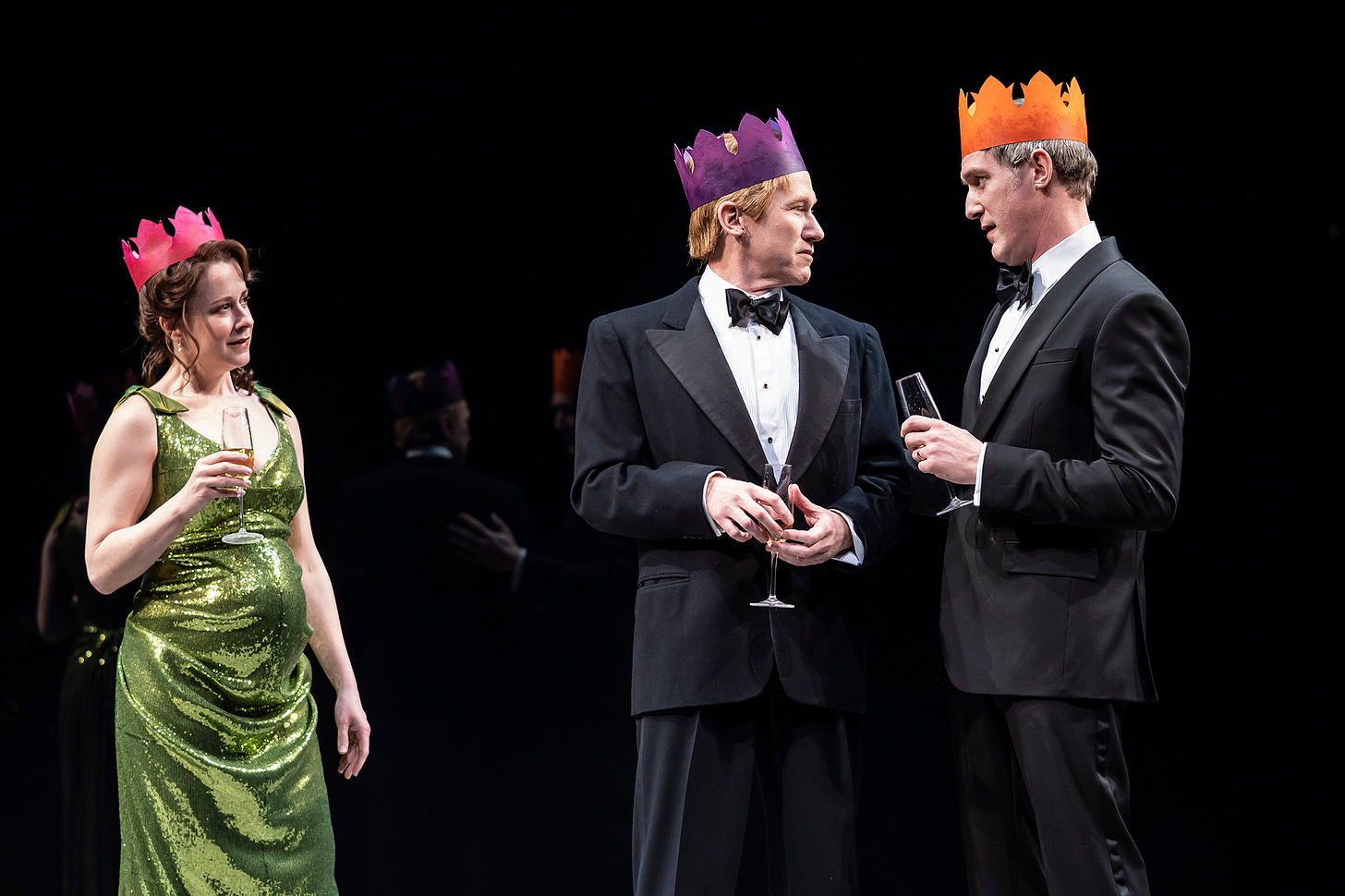Welcome to the free edition of Storefront Rebellion! This newsletter brings Chicago theater news and reviews from me, Kris Vire, right to your inbox. If you’re enjoying it, please tell your friends. Word of mouth is our best advertising. (I borrowed that from a few thousand post-curtain-call speeches.)
Storefront Rebellion is ad-free and supported entirely by readers. If you appreciate my perspective on theater in Chicago, please consider subscribing for $6 per month or $60 per year.
I also very much want to hear your feedback: Reply to this email, or if you’re reading this on the web, hit me at kris@krisvire.com or find me on Twitter @krisvire.
The weather’s being tetchy and Chicago Public Schools students still have three more weeks of class, but Memorial Day is behind us and tomorrow it’ll be June; it’s starting to feel like summer, finally.
You can check out most of my picks for new shows opening in June and July at Chicago magazine; they include musicals (Mary Zimmerman’s take on The Music Man; Kokandy Productions’ stunningly quick get of Head Over Heels; Natasha, Pierre & the Great Comet of 1812 composer Dave Molloy’s Ghost Quartet at Black Button Eyes), a good number of new plays (Selina Fillinger’s Something Clean from Sideshow and Rivendell; Alistair McDowall’s Pomona at Steep; Jez Butterworth’s The River at BoHo; Red Tape’s We Are Pussy Riot), and one 800-pound gorilla of a revival (True West at Steppenwolf).
Also at Chicago mag, my profile of Tarell Alvin McCraney is now online ahead of Monday night’s opening of Ms. Blakk for President at Steppenwolf. Also Monday night is the Non-Equity Jeff Awards ceremony, and I’ll have a write-up of the results at Chicago magazine next week.

Kate Fry as Hermione, Dan Donohue as Leontes and Nathan Hosner as Polixenes in The Winter’s Tale at Goodman Theatre. Photograph: Liz Lauren
Elsewhere recently, I reviewed Bob Falls’s Goodman production of The Winter’s Tale (see it!) and the Ramones bio-play Four Chords and a Gun (skip it!) for the Sun-Times.
And here at Storefront Rebellion, I’ve recently covered the half-baked August Rush at Paramount; a lush West Side Story at the Lyric Opera; Mark Guarino and Jon Langford’s confounding new musical Take Me at Strawdog; and the thoroughly charming world premiere Life on Paper at Jackalope.

Mary Williamson as Ida and Joel Ewing as Mitch in Life on Paper at Jackalope Theatre Company. Photograph: Joel Maisonet
Kris recommends
West Side Story, Lyric Opera, closes 6/2
A Number, Writers Theatre, closes 6/9
DJEMBE!, Apollo Theater Chicago, closes 6/9
The Children, Steppenwolf Theatre Company, closes 6/9
The Winter’s Tale, Goodman Theatre, closes 6/9
The Undeniable Sound of Right Now, Raven Theatre, closes 6/16
Life on Paper, Jackalope Theatre Company, closes 6/22
La Havana Madrid, Teatro Vista and Collaboraction at the Den Theatre, closes 6/22
The Adventures of Augie March, Court Theatre, closes 6/23
Next to Normal, Writers Theatre, closes 6/23
SIX, Chicago Shakespeare Theater, closes 8/4
Speaking of the Non-Equity Jeff Awards… A few weeks ago, while doing research for a forthcoming piece that’s only tangentially related, I came across an article in the Tribune archives that’s fascinating from the perspective of 2019—particularly in light of the conversation earlier this year around Steep Theatre going Equity.
The piece, by Sid Smith, ran on February 10, 1985, under the headline “Non-Equity theater: Still in the basement but moving up fast.” I can’t reproduce the whole thing, but if you have a Chicago Public Library card you should be able to get to it through this link. I’ll share a couple of excerpts, though:
Once, there were only Equity theaters [manned by union-affiliated personnel] and community theaters [operations sustained mostly by people with nonperformance careers indulging in theater in their spare time]. Now, there’s a third tier. Non-Equity theater involves highly dedicated, frequently well trained actors, directors and technicians who form companies, mount production after production in Chicago and are starting to get recognition and audiences that rival those of the off-Loop Equity efforts. These people want to make a living in theater and turn their companies into Equity operations.
“We look on this movement as a healthy sign,” says Suzanne Brown, Midwest regional director for Actors’ Equity. “Of course, we look forward to when they will be Equity and to when we have enough theater to support all the actors here who want to work. But these people are part of an interesting phenomenon, not that much different than, say, Steppenwolf Theatre in its early stages.”
And then, Smith’s closer:
Non-Equity may have created a new, permanent theater sphere, one that explores provocative and experimental material while serving as a kind of ever-evolving farm club for the profession.
But a lot of those working in it now think the current trend is limited and will eventually burn itself out. Many of these people are between 25 and 30 years old, and their energies invariably start to fade. “We’re not supposed to be here,” says Brian Finn, artistic director of the four-year-old Next Theatre Company, which is expected to go Equity sometime next season. “There simply isn’t enough business demand for all of us. In two years, about half of these groups will survive as Equity theaters. The rest will disappear.”
The number of Non-Equity groups Brian Finn was referring to at the time? According to Smith, about 35, up from just six a few years prior.



